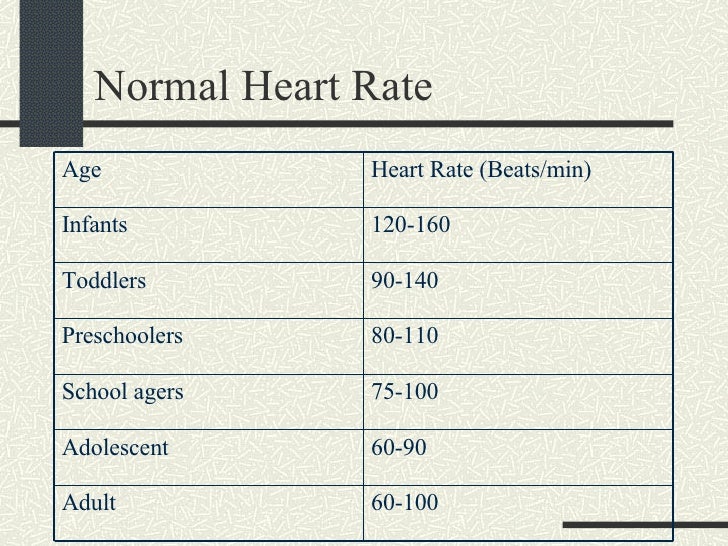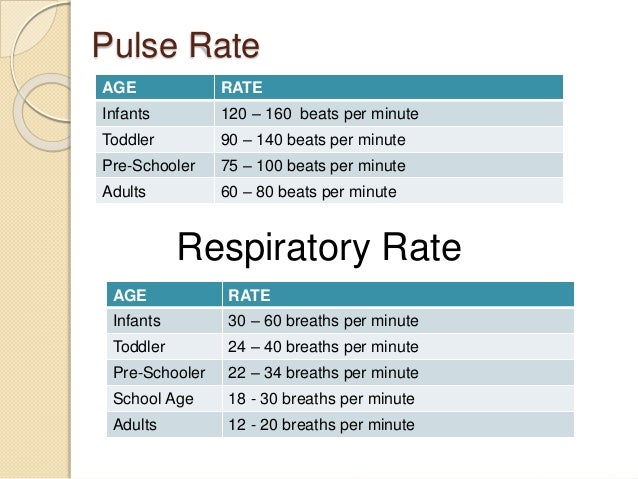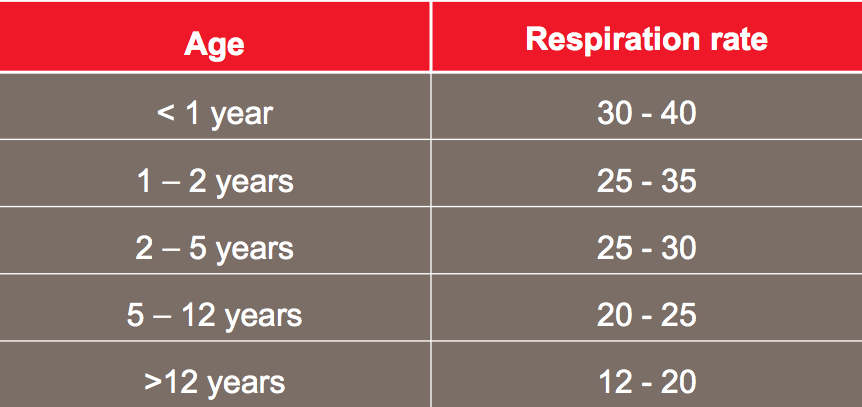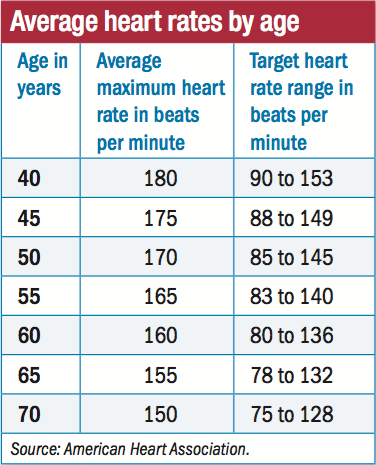Normal Pulse Rate Adult
The American Heart Association considers between 60 and 100 to be a normal resting pulse rate for an adult woman. This means that her heart should beat between 60 and 100 times per minute when she is sitting or lying in a calm and relaxed state.

Heart rate is the speed of the heartbeat measured by the number of contractions of the heart per minute (bpm). The heart rate can vary according to the body’s physical needs, including the need to absorb oxygen and excrete carbon dioxide.It is usually equal or close to the pulse measured at any peripheral point. Activities that can provoke …
The pulse rate can be used to check overall heart health and fitness level. Generally lower is better, but bradycardias can be dangerous. Symptoms of a dangerously slow heartbeat include weakness, loss of energy and fainting.

The normal pulse rate of an adult ranges from 60 to 100 beats per minute, according to Medical News Today. This rate temporarily increases or decreases depending on a variety of factors, including physical activity, body temperature and emotional state. Medical News Today explains that not only does
Normal pulse rate for men over 70 – What is a normal pulse rate for a 50-year-old man? Pulse. 60 to 84 would be nice
A normal resting heart rate for adults ranges from 60 to 100 beats a minute. A heart rate above or below that may signal a problem.

A pulse oximeter is a medical device that indirectly measures levels of hypoxia. The device senses levels of oxygen saturation in arterial blood using spectral analysis, along with pulse rate. Generally, oximeters are accurate in measuring oxygen saturation between 70 and 100 percent.



WebMD explains that the normal resting heart rate, also known as pulse rate, for men is 60 to 100 beats per minute. The resting pulse rate is measured after the individual has rested for 10 minutes. For well-conditioned athletes, the normal resting heart rate ranges from 40 to 60. There is some

What should you know about your heart rate? Even if you’re not an athlete, knowledge about your heart rate can help you monitor your fitness level — and it might even help you spot developing health problems. Your heart rate, or pulse, is the number of times your heart beats per minute. Normal
A newborn’s normal breathing rate is about 40 breaths per minute, and slows to as low as 20 when the baby is sleeping.



